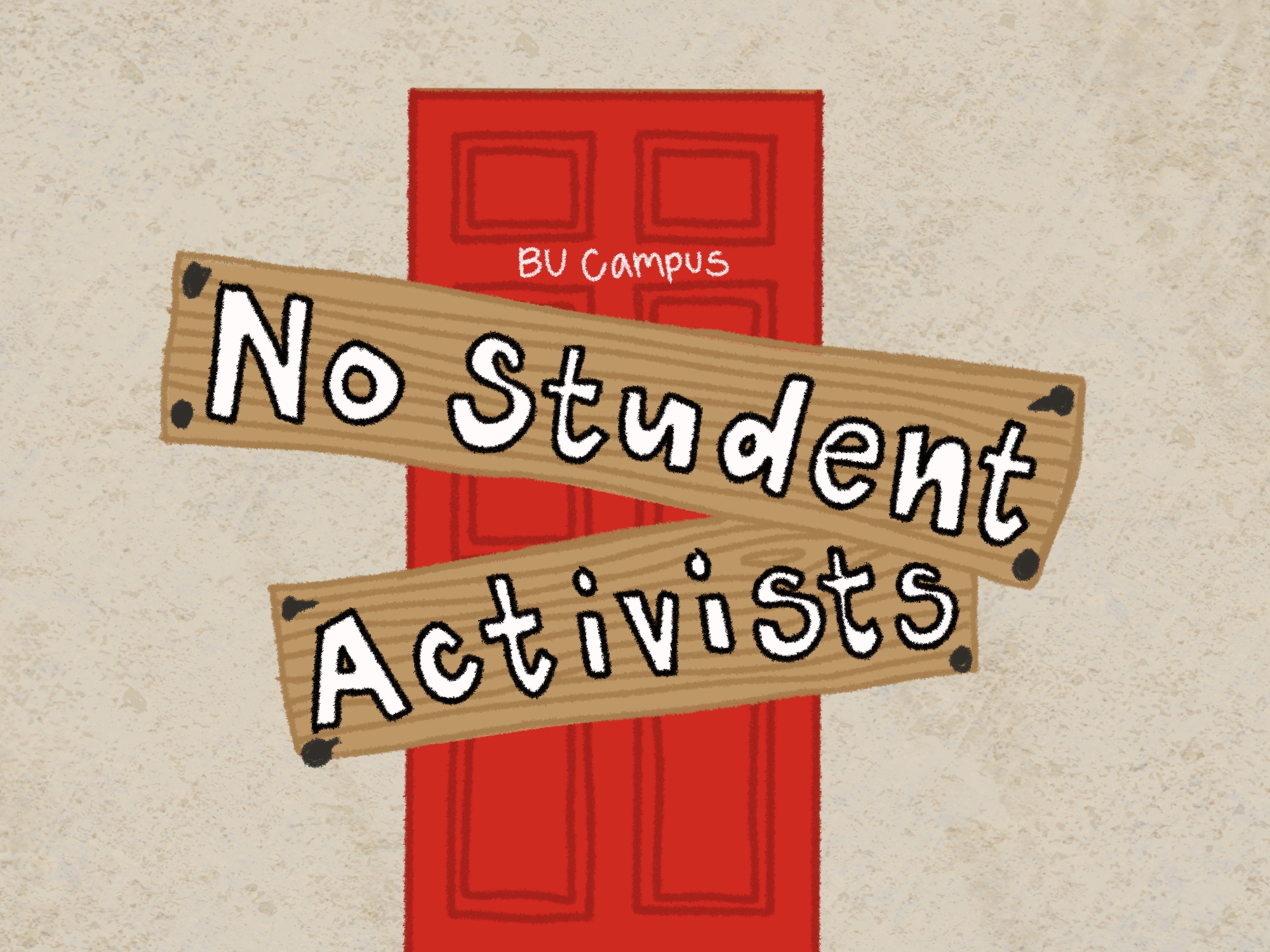On March 27, Boston University students entered the Center for Gender, Sexuality and Activism to find it trashed and vandalized in what the organization called a hate crime. BU’s Police Department was reported to be investigating the incident, but no suspect was identified. The CGSA’s executive board instead announced Aug. 17 that BU administration had permanently shut down the space.
On April 3, fliers were posted around campus for a walk-out bearing the logo for BU’s chapter of the Young Democratic Socialists of America. YDSA denied sanctioning the fliers, but the group was suspended regardless.

On March 5, BU senior Mary Haddad participated in a demonstration at 1 Silber Way, demanding the University act upon a divestment referendum that passed with over 90% student support. The Office of Judicial Affairs alleged she assaulted an officer. Haddad appealed, claiming in a statement that video evidence proves she did not put her hands on the officer. The decision was affirmed anyway.
As student voices are getting louder, BU is working overtime to silence them.
As President Donald Trump continues his crackdown on higher education institutions under the guise of curbing indoctrination and antisemitism, universities like Harvard have fought back to protect their academic freedom and the student demographics the Trump administration seeks to target.
But others, like BU, seem to be taking power away from their students, perhaps with the hope of staying off the federal funding chopping block.
It hasn’t just been the shutdown of the CGSA and suspensions of organizations like YDSA or BU Students for Justice in Palestine — which used the CGSA as a meeting space — which have both respectively disbanded and reformed independently of the University.
In addition to drastically curtailing student organizing, BU has made an effort to reinstall these spaces for advocacy under administrative control. The University claimed the CGSA space will be “reimagined” as the Student Leadership and Impact Center — apparently mirroring the original space but with limited hours and administrative oversight.
Similarly, in response to the growing student movement to make BU declare itself a sanctuary campus — which would involve refusing to cooperate with immigration enforcement and protecting undocumented and international students — the University has instead implemented BU Support Pathways, which promises free legal aid but does not come close to guaranteeing the protections of a sanctuary campus.
But this behavior isn’t new. In fact, our university has a long history of silencing its students when they speak out about global injustice.
In 1970, BU student protests following the Kent State University shootings during the Vietnam War resulted in the cancellation of final exams and commencement. Two years later, Boston police arrested 33 student activists who protested military recruitment on campus.
When BU invested $6 million in South Africa’s economy in 1979 — and refused to disclose which companies were directly involved — campus-wide protests ensued.
Seven years later, 11 students were arrested in the George Sherman Union after building a “shanty” to express solidarity against apartheid. When the Student Union held an election to divest from South African apartheid profiteers the same year, the senator who led the vote was removed from his position and subsequently expelled.
BU refused to disclose its investments in war profiteering and apartheid. Students spoke out. They were punished. Sound familiar?
Our school’s pattern of punishment for protest isn’t a surprise — it’s standard. But what can be said about the other groups who also bear the brunt of these shutdowns?
Advocacy groups like BU’s Trans Listening Circle and Students for Reproductive Freedom were also forced out of their meeting space when the CGSA was shut down. These organizations were not leading the charge in organizing for Palestine on campus, and therefore, they can’t be looped in under the deceptive guise of the Trump administration’s crackdown on antisemitism.
These are student-run advocacy groups that are forced to relocate to make way for an admin-regulated space — groups dedicated to the safety of marginalized people that BU claims it wants to protect. And what better way to back a marginalized group than to allow them space to meet and organize on their own terms?
Either the BU administration sees all these progressive groups as deserving of collective punishment for the vocal action of a few, or it sees all outwardly-facing progressivism as interchangeable and equally reprehensible.
Or BU just doesn’t care about its marginalized students — no matter what message they put forth.
Maybe our university has no backbone when federal funding is at stake.
Perhaps it’s a bit of everything, but regardless, it’s time for BU to break the pattern.
This Editorial was written by Opinion Co-Editor Ada Sussman.




















































































































